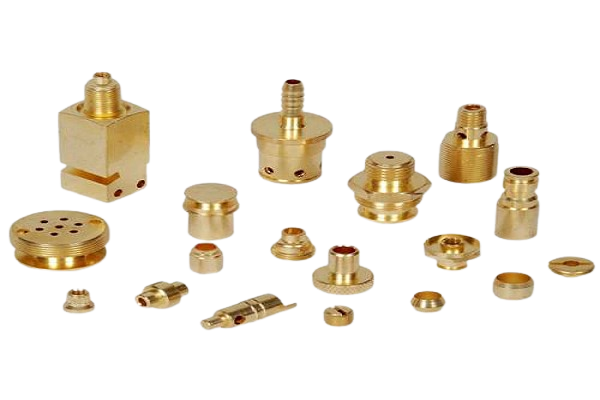
Precision Brass Components
Precision brass components are intricately crafted parts made from brass materials, renowned for their exceptional properties such as corrosion resistance, ductility, and excellent machinability. These components are precision-engineered to meet specific requirements, ensuring high accuracy, reliability, and performance in various applications. Brass, an alloy of copper and zinc, offers a unique combination of strength, durability, and aesthetic appeal, making it a preferred material for a wide range of industries, including automotive, aerospace, electronics, and plumbing.
The manufacturing process of precision brass components involves advanced machining techniques such as CNC turning, milling, and grinding. These processes enable the production of complex geometries and intricate designs with high precision and consistency. Precision brass components can be customized to meet specific dimensional tolerances, surface finishes, and mechanical properties, ensuring they fit seamlessly into their intended applications. The versatility of brass allows for a broad range of applications, from decorative fixtures to critical mechanical parts.
Precision brass components are widely used in various industries due to their excellent properties and performance. In the automotive sector, brass components are used in fuel systems, hydraulic systems, and electrical connectors. In the aerospace industry, brass parts are utilized for their reliability and resistance to corrosion in critical applications. The electronics industry relies on brass components for their electrical conductivity and durability in connectors, switches, and terminals. Additionally, brass components are used in plumbing fixtures, musical instruments, and decorative hardware, showcasing their versatility and wide-ranging applicability.
The benefits of precision brass components include their excellent machinability, corrosion resistance, and electrical conductivity. Brass is known for its ease of machining, allowing for efficient and cost-effective production of complex parts. Its corrosion resistance makes it suitable for applications exposed to harsh environments, while its electrical conductivity is beneficial for components requiring reliable electrical performance. Overall, precision brass components offer a reliable and high-performance solution for a diverse array of applications, ensuring durability, efficiency, and precision in various industrial and commercial uses.
REQUEST A QUOTE



